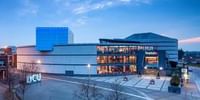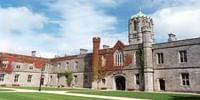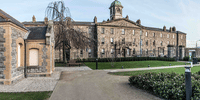Areas of applied mathematics taught on the course include:
- aspects of more classical applied mathematics in the form of elements of mechanics
- mathematical modelling methods and techniques
- computer programming language and use of modern sophisticated symbolic software
- numerical experimentation
- general mathematical methods
- elements of the modern areas of chaos and dynamical systems.
The first-year course assumes no previous knowledge of applied mathematics and extensive tutorial support is available throughout.
Course Practicalities
Year 1: You will be introduced to the construction and analysis of mathematical models of a variety of problems and processes arising in business, finance, biology, physics and engineering.
You will study elements of mechanics in which first- and second-order differential equations are used to gain insight and understanding of some significant natural systems.
You will also learn how to make use of mathematical computer software for solving mathematical problems.
Years 2 and 3: You will take modules from a selection of topics in Applied Mathematics.
You will improve your computing skills by studying a high-level programming language and will learn how to use transform and Fourier methods to solve problems in applied mathematics.
You will also systematically study phenomena which occur in dynamics systems, and techniques of control. These skills are constantly applied to real-world problems from many different disciplines.In Year 3 you will also undertake a project of guided literature reading, where you will learn to understand some of the current research literature in the area of applied Mathematics.











